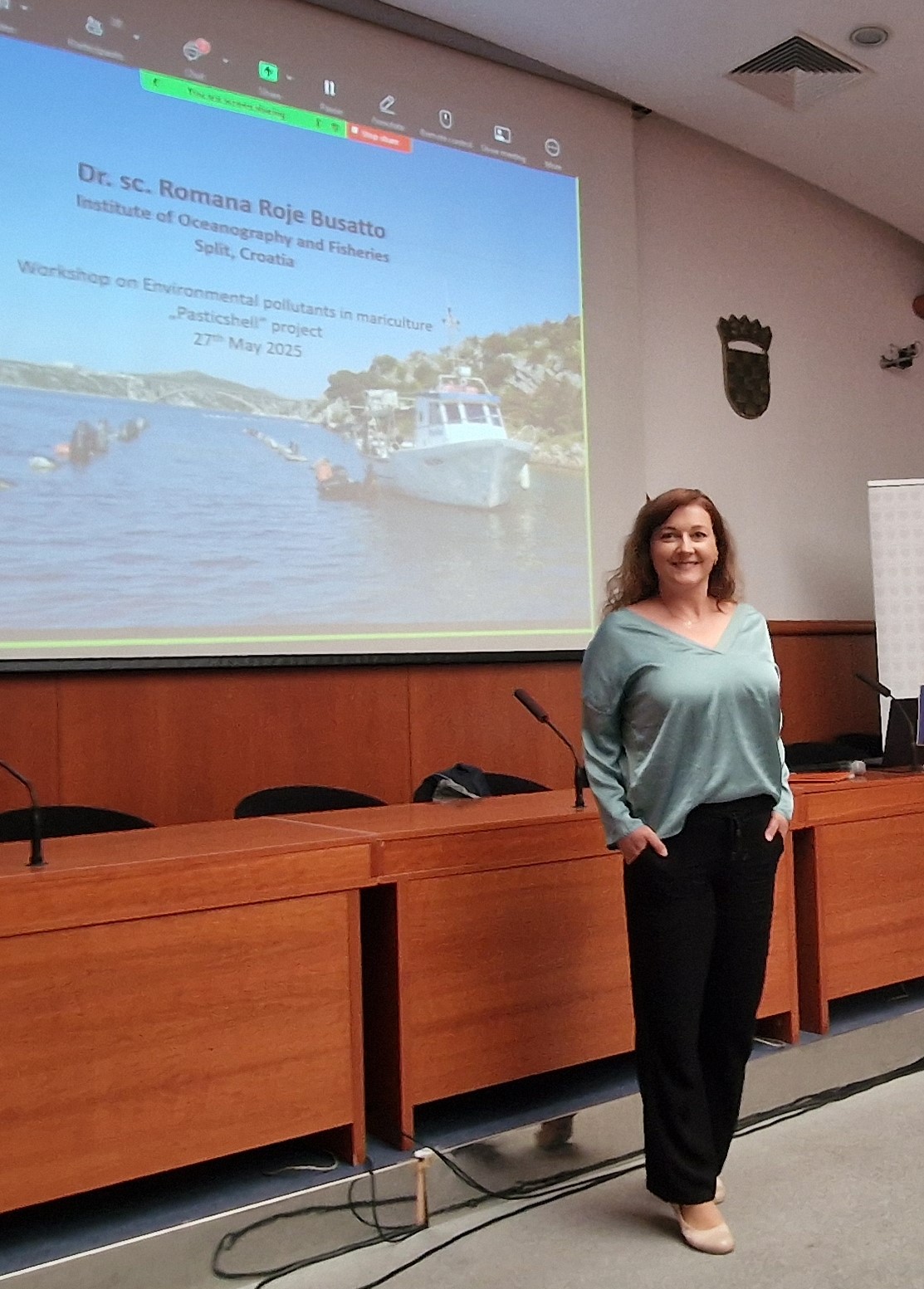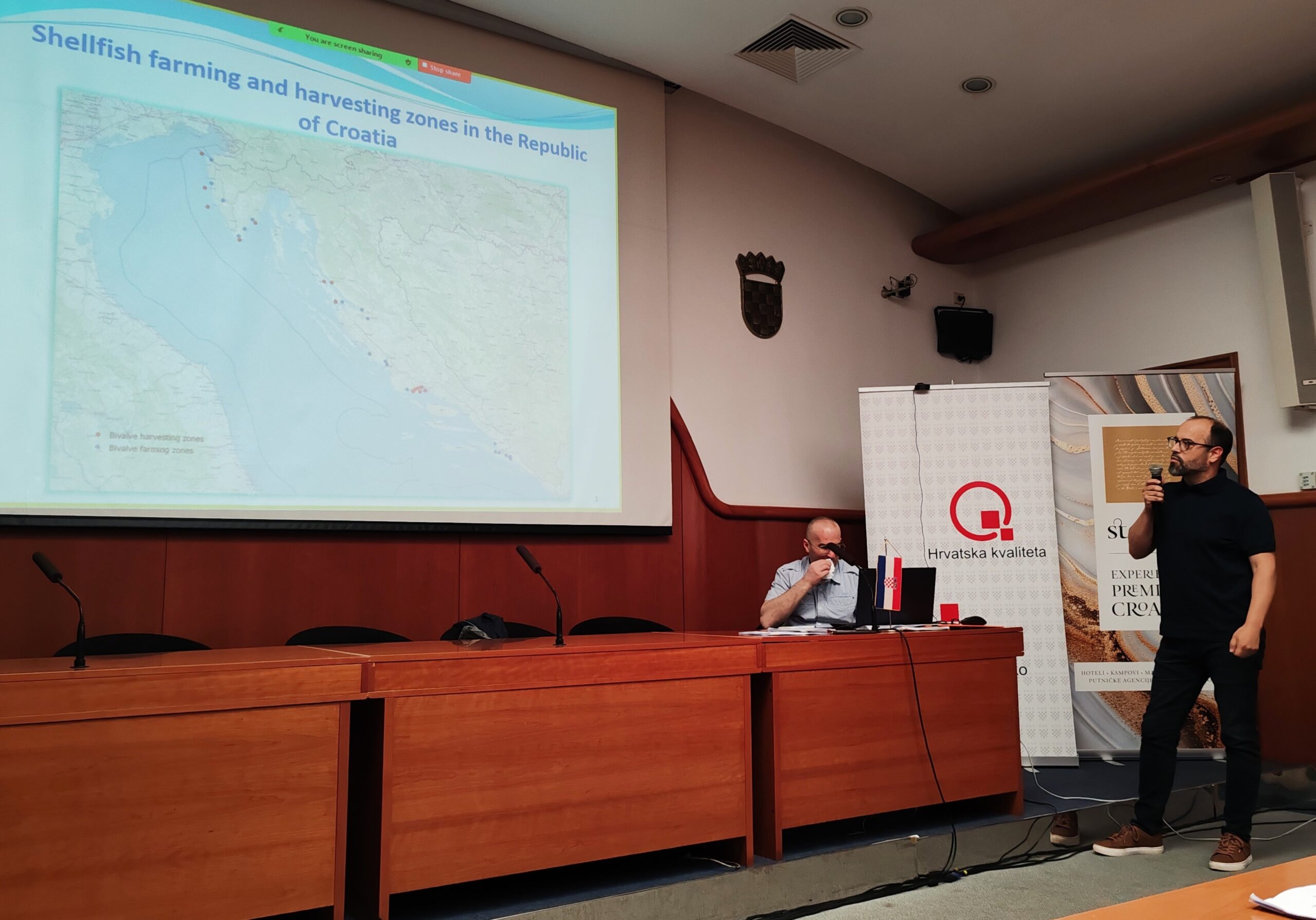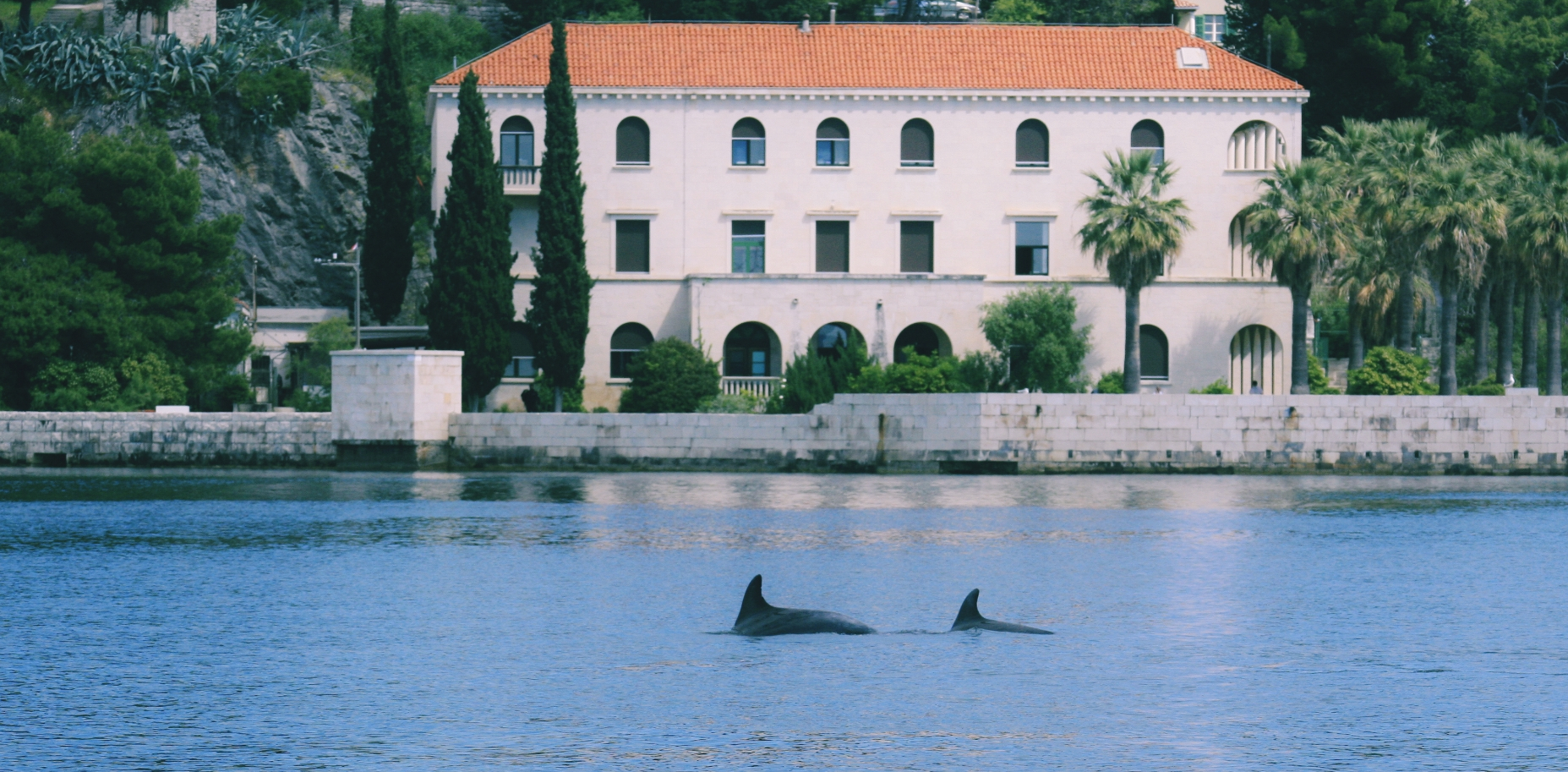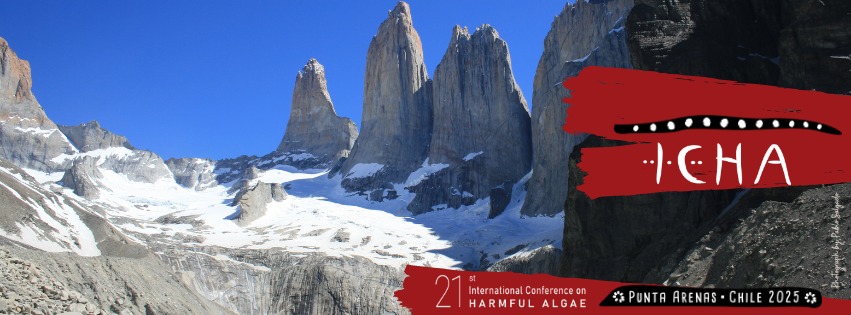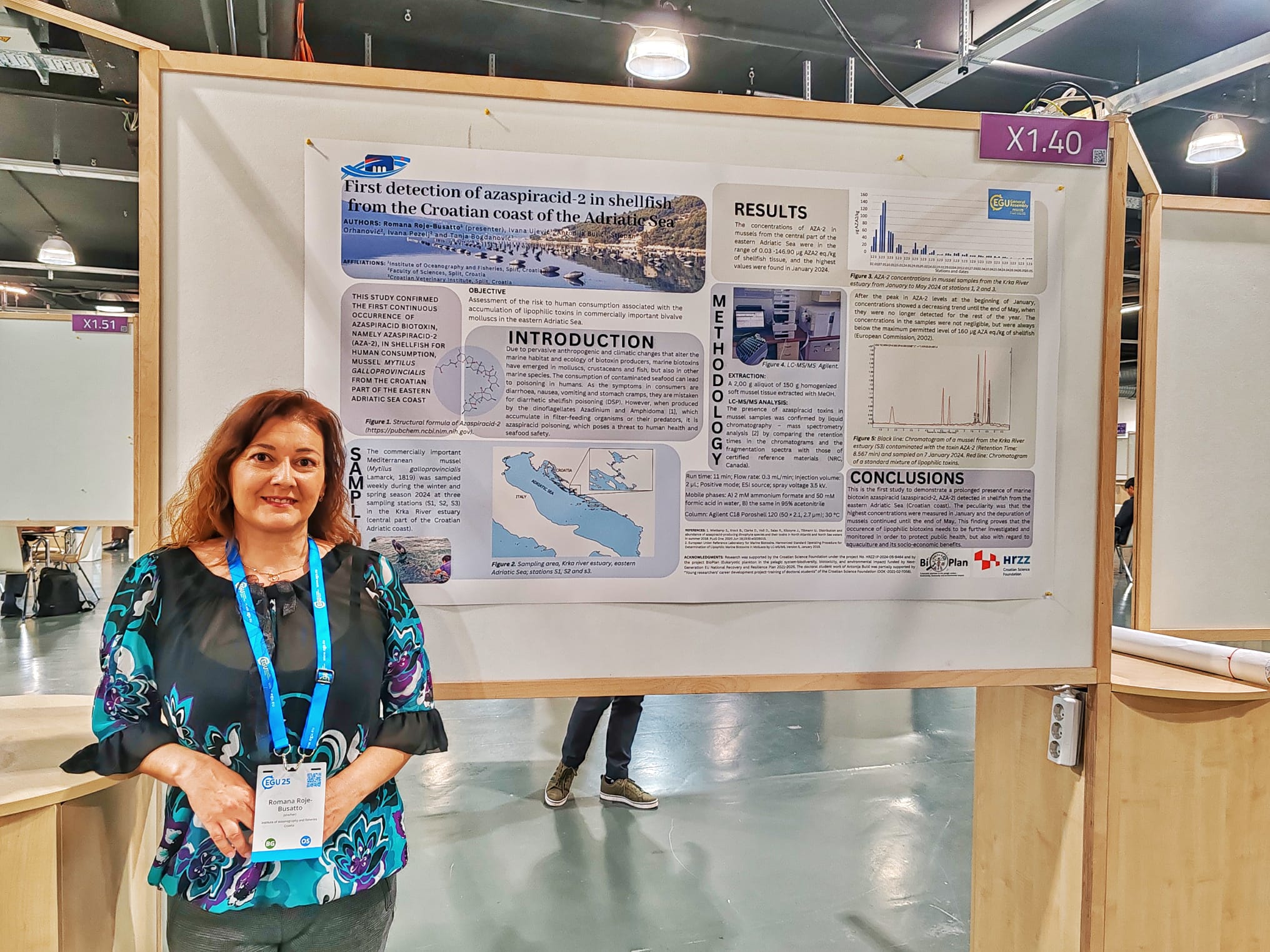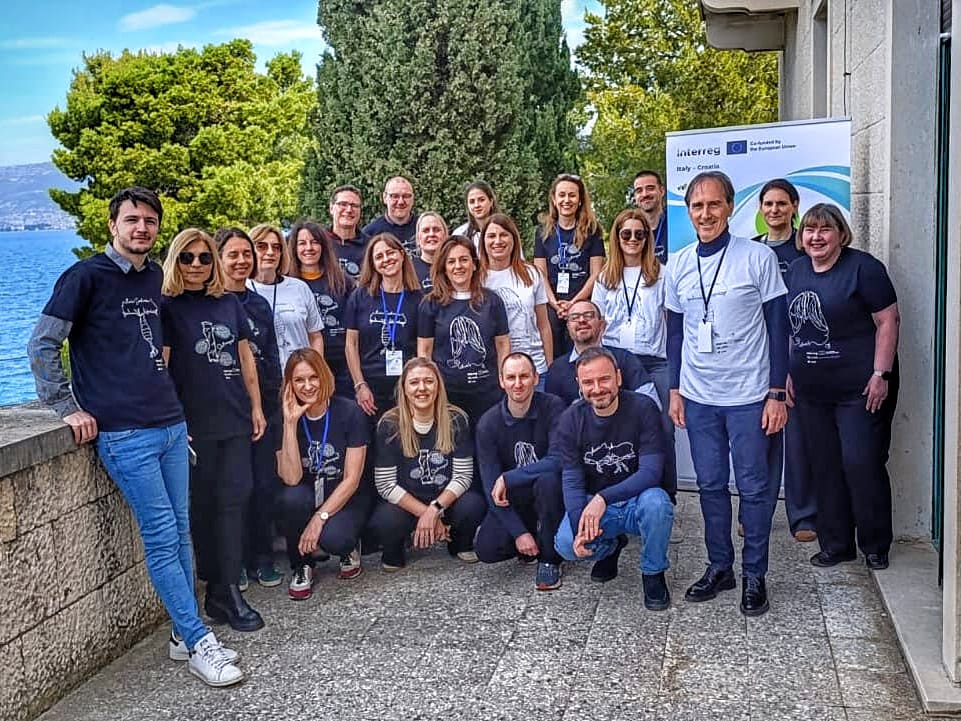Researchers from the Institute of Oceanography and Fisheries participated in the international scientific workshop “Environmental Pollutants in Mariculture”, held on May 27, 2025, in Split. The event was organized by the Croatian Veterinary Institute, led by Dr. Tanja Bogdanović, as part of the PLASTICshell project titled “Occurrence of Microplastics and Bisphenols in Shellfish Along the Croatian Coast of the Adriatic Sea.” The workshop took place in hybrid format at the Croatian Chamber of Economy – County Chamber Split.
The primary goal of the first PLASTICshell workshop was to present an overview of both regulated and emerging environmental pollutants in mariculture—focusing in particular on microplastics and bisphenols—and to discuss strategies for limiting and removing these contaminants in the context of European regulations. The event also addressed risk-benefit assessments related to the consumption of seafood, emphasizing that, despite contamination risks, the nutritional value of marine organisms must not be overlooked.
As part of the scientific program, two invited lectures in English were delivered by representatives of the Institute:
Nikša Nazlić presented “Official Sampling of Sea Water and Bivalves within the Live Bivalve Monitoring Plan – Practical Example.” His talk covered official sampling techniques for seawater and live bivalves, including sampling frequency, locations, and purpose within environmental monitoring practices in mariculture, aligned with European standards.
Dr. Romana Roje Busatto gave a lecture titled “Marine Biotoxins in Mariculture,” where she discussed types of marine biotoxins, symptoms of poisoning, official biotoxin monitoring in Croatia and Europe, and the occurrence of paralytic toxins and tetrodotoxins in the Adriatic Sea. She highlighted microplastics as vectors for biotoxins, potentially enhancing bioaccumulation in marine organisms and posing additional risks to human health.
